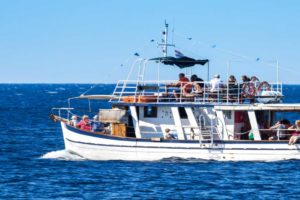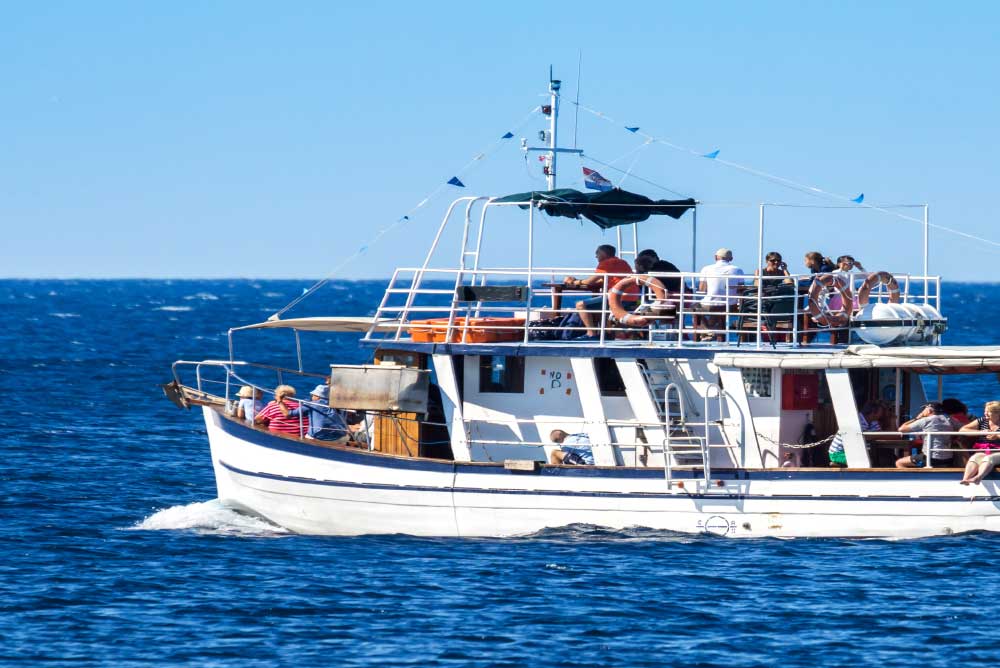Disclaimer: The information on our website is provided for general information purposes only. We make no representations or warranties of any kind, express or implied, about the completeness, accuracy, reliability, suitability or availability with respect to the website or the information contained on our website for any purpose. Any reliance on such information is therefore strictly at your own risk and we are not liable for any damages or losses arising out of or resulting from your reliance on any information contained on our website.
A motorboat operator transports passengers or products by boat on a small scale. Additionally, they operate smaller vessels for tourism-based businesses such as water-based tours, fishing or diving trips, or shuttle services. Some motorboat operators also patrol a harbor or other little bodies of water. Next, watch the following video to learn what a motorboat operator does.
How to Become a Motorboat Operator

Motorboat operators typically have a high school diploma or equivalent. Most employers prefer that you have a Motorboat Operator Certificate and often want you to have prior experience in some form or fashion. Motorboat Operator Certification Courses (or MOCC) can be earned through the Department of Interior US Fish and Wildlife Service or local colleges.
The MOCC course contains classroom (or online) coursework and hands-on experience. It can take a few days to complete and generally takes less than 24 hours. Along with the vessel’s basic operation and seamanship, you’ll also learn how to prepare the craft. They will also teach you the navigation, emergency, and rescue procedures. To pass the certification, you must pass a written exam and an on-the-water, hands-on component. Also, refresher courses may be required every couple of years to stay current. We encourage you to look at the requirements of your state to ensure you stay in compliance.
Job Description of a Motorboat Operator
A motorboat operator’s primary job is to navigate a watercraft or work as a crew member. They prepare and keep vessels in working order; including cleaning the craft, performing basic repairs, adding fuel, and ensuring adequate emergency equipment on board for the passengers and staff. If you are the lead operator, you must also ensure everything is operating safely and effectively. Other tasks include docking the vessel, boarding or off-loading passengers, and seating passengers safely. Many motorboat operators work as a guide for tours, fishing charters, or scuba trips. In these instances, the operator must also be skilled in providing these services and operating their craft. Good customer rapport and communication skills are essential to be successful. Learning local landmarks, geographical features, and history of the area you are touring can be invaluable as well.
Some motorboat operators do not work directly with the public and only transport materials. They may travel back and forth in harbors or rivers doing this. Tasks and responsibilities include operating the vessel, adequately storing all materials, unloading/loading, and ensuring timely deliveries. These motorboat operators often work with a crew of people. Some even assist in monitoring the waters for unsafe boating practices, working with coast guard or state officials.
Motorboats operators usually have seasonal positions and work less than 40 hours a week; therefore, they often supplement their income with other part-time jobs. They are always outside and exposed to a variety of weather to include extreme sun exposure.
Motorboat Operator Career Video Transcript
Motorboat operators run small, motor-driven boats that carry only a few passengers. They operate fishing charters, tours, and harbor patrols. Their technical tasks include refueling, checking and changing the oil and other fluids, navigation, and ensuring any cargo or materials are secure. For passenger boats, motorboat operators pick up passengers and help them board and instruct them in emergency procedures. Some also act as tour guides or fishing guides in their work.
Motorboat operators are exposed to all kinds of weather, and must follow safety procedures to keep themselves and passengers safe. Motorboat operators typically go out for a few hours at a time and return home each night. Many work in locations that are vacation destinations, and have seasonal schedules. While there are no standard educational requirements for motorboat operators, many employers prefer candidates who have a motorboat operator certificate.
Article Resources
Bureau of Labor Statistics, U.S. Department of Labor, Occupational Outlook Handbook, 53-5022 Motorboat Operators.
The career video is in the public domain from the U. S. Department of Labor, Employment and Training Administration.

